TUM Think Tank
Where today's societal challenges meet tomorrow's technological excellence.
Meet the Fellows
Meet the new Friedrich Schiedel Fellows who work on building new bridges between social sciences, technology, and other disciplines. Their interdisciplinary research projects, under the motto "Human-Centered Innovation for Technology in Society" focus on how technologies can be developed responsibly, human-centered, and democratically, serving the public good.
Auxane Boch: Psychology Impact Assessment for Interactional Systems: Defining the Evaluation Scope (PSAIS)

This research project aims to address the lack of frameworks for systematically assessing the diverse psychological impacts of AI. By adopting a participatory approach and considering cultural values, the project seeks to develop a multi-cultural mapping framework for evaluating the psychological impact of AI systems. The research will involve workshops and consultations with stakeholders from various sectors and regions to define evaluation criteria. The project will contribute to the development of concrete recommendations for action by providing a culturally-informed framework that can guide the responsible development and application of AI technologies. The impact of the project extends to academic disciplines, partner institutions, societal stakeholder groups, and policy actors. It will foster interdisciplinary knowledge exchange, stimulate discussions on standardization, and contribute to the reduction of potential inequities arising from technology adoption. The project aims to be a change agent by actively contributing to the implementation of the recommendations and ensuring user well-being and trust in AI systems.
Efe Bozkir: Echoes of Privacy: Exploring User Privacy Decision-Making Processes towards Large Language Model-based Agents in Immersive Realities

User privacy concerns and preferences have been researched extensively in the context of various technologies, such as smart speakers, IoT devices, and augmented reality glasses, to facilitate better privacy decision-making and human-centered solutions. With the emergence of generative artificial intelligence (AI), large language models (LLMs) have started being integrated into our daily routines, where models are tuned with vast amounts of data, including sensitive information. The possibility of embedding these models in immersive settings brings a plethora of questions from privacy and usability point of view. In this project, through several user studies, including crowdsourcing ones, we will explore privacy concerns and preferences towards LLM-powered and speech-based chat agents for immersive settings and inference likelihood of alarming user attributes. The findings will help understand the privacy implications of such settings, design informed consent procedures that support users in immersive spaces that include LLMs, and facilitate privacy-aware technical solutions.
Baris C. Cantürk: Future Finance Law Hub (“F2L_Hub”)
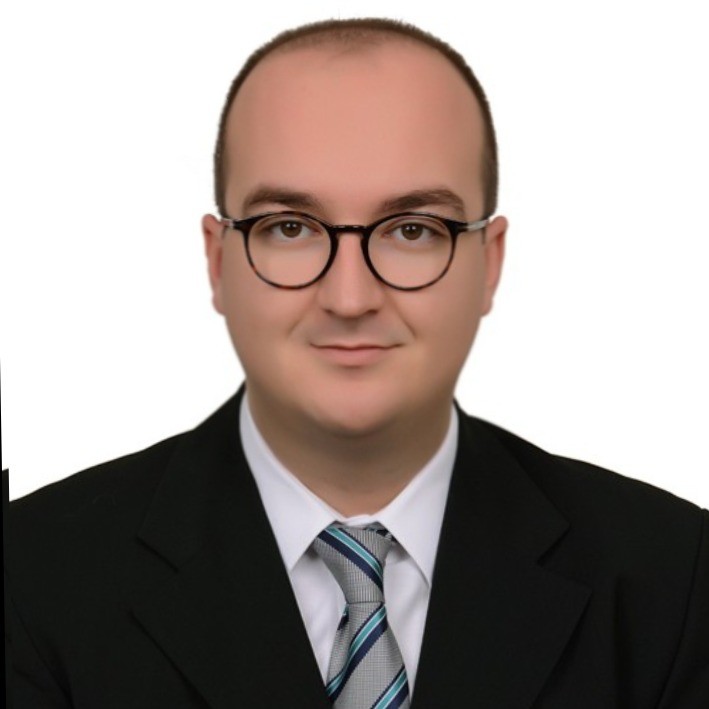
The Future Finance Law Hub (“F2L_Hub”) is a project aimed at becoming a policy-maker hub at the intersection of IT law and commercial law, established at TUM, with the primary area of influencing Germany and the European Union in the medium to long term. Central to its modus operandi is the aggregation of prominent stakeholders from academia and industry across multidisciplinary domains, including law, finance, and IT, to generate significant outputs.
As delineated in the foregoing summary, F2L_Hub embodies a mission of considerable magnitude, delineating medium and long-term objectives aimed at institutionalizing a tradition in this field. Thus, this fellowship is poised to function as the catalyzing force behind the establishment of F2L_Hub, leveraging both financial resources and access to an excellent academic environment. Through this esteemed fellowship, a noteworthy organizational milestone will be attained, facilitating the procurement of requisite funding and partnerships vital for the execution of ancillary processes.
Daryna Dementieva: Harmful Speech Proactive Moderation

Offensive speech remains a pervasive issue despite ongoing efforts, as underscored by recent EU regulations aimed at mitigating digital violence. Existing approaches primarily rely on binary solutions, such as outright blocking or banning, yet fail to address the complex nature of hate speech. In this work, we want to advocate for a more comprehensive approach that aims to assess and classify offensive speech within several new categories: (i) hate speech that can be prevented from publishing by recommending a detoxified version; (ii) hate speech that necessitated counter speech initiatives to persuade the speaker; (iii) hate speech that should be indeed blocked or banned, and (iv) instances mandating further human intervention.
Mennatullah Hendawy: Setting up the Future with Sustainable Choices: GenAI Support in Resolving Multi- Stakeholder Conflicts in Sustainable Critical Metals & Minerals Development
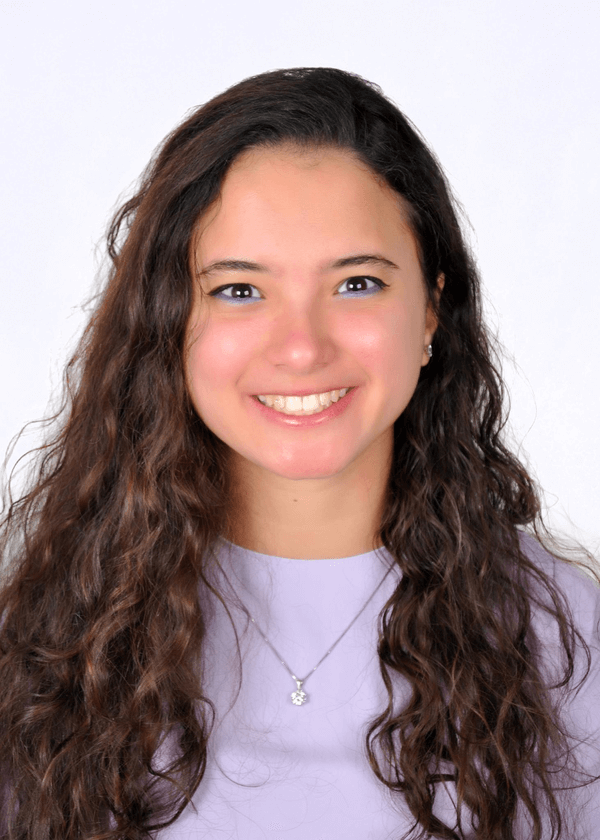
This project outlines an innovative approach to resolve multi-stakeholder conflicts in the sustainable development of critical metals and minerals essential for decarbonization efforts. Recognizing the complexities and sustainability challenges within the supply chains of these materials, particularly those sourced from the Global South / emerging economies, the project proposes a digital platform leveraging reactive machine AI (RM-AI) and generative AI (Gen-AI) with human-in-the-loop functionalities. This platform is designed to facilitate transparent and inclusive discussions among public/community representatives, government, and industry stakeholders, ensuring a balanced consideration of environmental, economic, and social sustainability targets. Through co-developing a concept for an interactive, game- based decision-making tool powered by Gen-AI, the project aims to identify common interests, model sustainability trade-offs, and find consensus solutions that align with the societal goals of reducing inequality and promoting economic growth with decent work conditions. The project's integration of RM and Gen AI aims to bridge the gap between technical and non-technical decision-makers, enhancing stakeholder engagement and trust in AI-driven processes, thereby aligning closely with the fellowship’s mission of human- centered innovation and interdisciplinary collaboration for the public good.
Franziska M. Poszler: Research-based theater: An innovative method for communicating and co-shaping AI ethics research & development

This project will implement a creative approach to conducting, educating, and communicating AI ethics research through the lens of the arts (i.e., research-based theater). The core idea revolves around conducting qualitative interviews and user studies on the impact of AI systems on human ethical decision-making. It focuses specifically on exploring the potential opportunities and risks of employing these systems as aids for ethical decision-making, along with their broader societal impacts and recommended system requirements. Generated scientific findings will be translated into a theater script and (immersive) performance. This performance seeks to effectively educate civil society on up-to-date research in an engaging manner and facilitate joint discussions (e.g., on necessary and preferred system requirements or restrictions). The insights from these discussions, in turn, are intended to inform the scientific community, thereby facilitating a human-centered development and use of AI systems as moral dialogue partners or advisors. Overall, this project should serve as a proof of concept for innovative teaching, science communication and co-design in AI ethics research, laying the groundwork for similar projects in the future.
More information on the project can be found here:https://www.ieai.sot.tum.de/research/moralplai/
Malte Toetzke: Developing the Google Maps for the Climate Transition

I envision to develop the Google Maps for the climate transition. Business leaders and policy makers need more comprehensive and timely evidence to accelerate industrial development of climate-tech effectively. With recent advances in Artificial Intelligence (AI), it is now possible to develop models that generate such evidence at large scale and in near real-time. In the project, I will analyze the global network of organizations collaborating on climate-tech innovation. The network is based on processing the social media posts of organizations via large language models (LLMs). It includes key public and private actors and spans various types of climate technologies (e.g., solar, hydrogen, electric vehicles) and types of collaborations (R&D collaborations, demonstration projects, equity investments). I will use the fellowship to conduct in-depth analyses generating valuable insights for managers and policy-makers on facilitating innovation clusters. Furthermore, I plan to operationalize the information retrieval and processing enabling analyses in real-time.
Chiara Ullstein: Participatory Auditing (in cooperation with Audit.EU)

The EU AI Act posits that providers (management and developers) of high-risk AI systems have to undergo conformity assessment. The conformity assessment encompasses several measures that are supposed to corroborate that a system is legally compliant, technically robust, and ethically sound, and can be considered ‘trustworthy AI’. The project ‘participatory auditing’ aims to contribute to the project Audit.EU (1) by exploring how companies can leverage their learnings from established compliance practices such as for the GDPR and (2) by proposing participation as an approach to source AI Act compliance-relevant information from suitable stakeholders to increase inclusivity and mitigate risks of discrimination. Participation is considered to enhance the process of achieving compliance through a comprehensive testing and feedback process. Based on learnings from established compliance measures, a framework for performing auditing in a participatory manner and in accordance with the EU AI Act will be developed and evaluated. The primary goal of the framework is to serve developer teams as a guideline.
Niklas Wais: Law & AI: Navigating the Intersection

Most areas of law that should in principle be relevant for AI currently leave many intersectional questions unanswered. The reason for these open questions is that jurisprudence cannot pursue its task of incorporating AI into the existing dogmatics because it lacks sufficient technological understanding. At the same time, developers lack knowledge of the law and therefore only base their design decisions on performance, but not compliance with e.g. data protection or anti-discrimination law. Although students from various professional backgrounds want to learn more about the underlying interface issues, truly interdisciplinary educational material is missing. My project will address this and transform the rare specialist expertise that currently only exists at TUM into a freely available online course. By fostering interdisciplinary collaboration between law and technology and sharing cutting-edge knowledge as effectively as possible, the project seeks to promote the responsible use of AI for the benefit of society.
The Urban Digitainability Lab (UDL) combines digitalisation and sustainability in urban areas in order to ensure sustainable local services of general interest. To this end, the TUM Think Tank is creating an interdisciplinary space for experimentation and collaboration in which scientists and practitioners from politics, business and civil society can develop solutions for sustainable digital urban development. The UDL aims to strengthen the transformation capacity of municipal administrations through innovative networking, training and transfer formats.
We are currently looking for one student assistant for each of the following four areas of responsibility:
- Community Building
- Academy Program
- Science Transfer
- Accompanying Research
Find detailed role descriptions and further information on the application process (in German) through the button below.
Apply by July 8th, preferably via email at tumthinktank@hfp.tum.de, and join the vibrant TUM Think Tank community. We look forward to meeting you!
For any questions, please contact Felix Beer, Project Coordinator of the Urban Digitainability Lab, at felix.beer@hfp.tum.de
This project at the TUM Think Tank is supported by Stiftung Mercator under their "Digitalisierte Gesellschaft" section.
How can we make abstract technologies such as quantum technologies tangible?
At first glance, art and technology may seem to be separate fields. However, new technologies often inspire creativity in the arts and continually expand its horizons. Moreover, art offers unique and sometimes surprising perspectives on technological advances, revealing the deep connection between the two.
At the QuantWorld project, we firmly believe that art can serve as a translator to make the often elusive concepts of quantum technologies and their impact on our everyday lives tangible and that a holistic approach including thoughts of responsibility and consciousness can improve further developments.
This is the reason for our decision to include artistic interventions and artists prominently in the project.
We are excited to work with a group of remarkable artists whose artistic interventions bring a unique perspective to the abstract world of quantum technologies. It is our belief that, through this creative approach, the transformative power of these new technologies can be understood and experienced by everyone.
In our mission to forge innovative paths at the intersection of art and technology, we are also proud to partner up with MATTER and the XR Hub Bavaria. With MATTER, we are developing a unique framework for artistic interventions, while the XR Hub Bavaria helps us bring art to life through immersive extended reality (XR) formats.
Meet our artists
Patrik Hübner
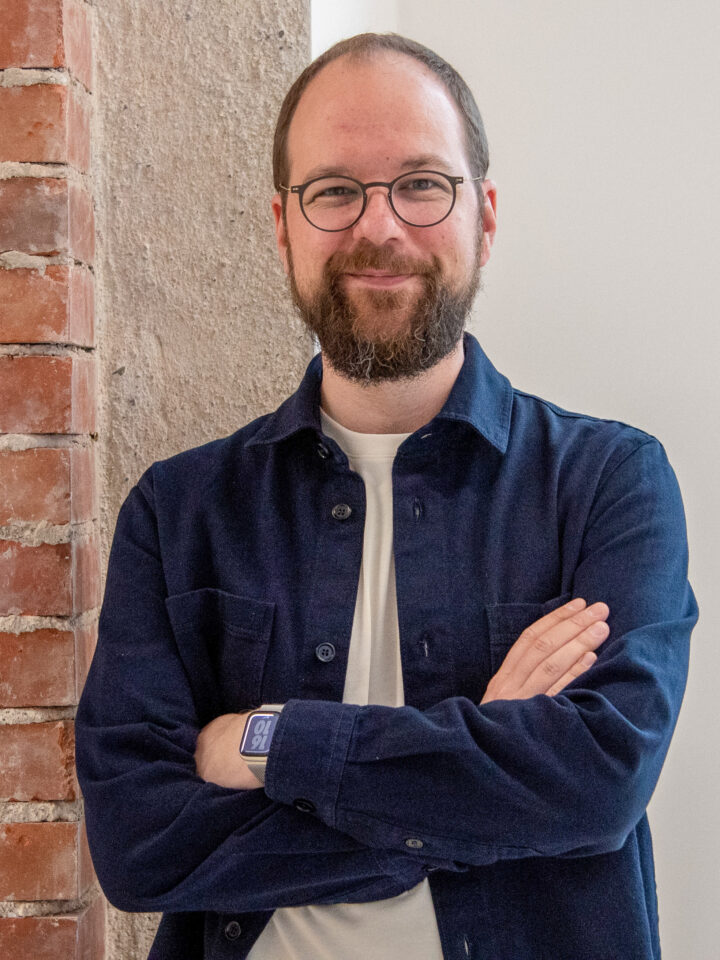
Photo Credit: Larissa Lenze
As a programming designer and creative director, Patrik Hübner has been working at the intersection of brand communication and technology for over 15 years. Working in traditional design for years, he discovered generative design in 2014 and became one of the few individuals to have successfully established this seamless blend of art, design and data into cohesive and compelling design systems and narratives on an international level. Today, he works as a generative designer with international brands, agencies and cultural institutions. As a lecturer at universities, he teaches on the topic of generative design, is a regular keynote speaker and gives workshops.
His clients include Landor & Fitch, Interbrand, Serviceplan, Wieden+Kennedy, The New York Times, Evian and Lexus. Patrik has given talks at Deutsche Telekom, IBM, Publicis, The Atlantic, universities and at events such as re:publica Berlin and Dutch Design Week. Since 2018, his generative work has won over 30 awards, including the ADC Award, the European Design Award, the German Design Award, the D&ADAward, the World Brand Design Award and many more.
https://www.patrik-huebner.com/
Why did you become part of the QuantWorld project?
“To me, art can act as a mediator and translator of complex technological concepts into comprehensible, engaging experiences that can be more easily digested by both individuals and the society as a whole. In this context, my work in the field of generative design – rooted in the interplay of algorithms and human creativity – can surface new perspectives by contributing computational systems that create forms or experiences which react and adapt over time. If used in the context of tangible and emotionally relevant expressions, this approach can spark new conversations within our society about possible and desirable futures as well as ethical considerations of quantum technologies. This process of interaction between design, technology, and societal feedback loops is integral to fostering an informed community that can adapt to and influence technological evolution.
This project is a profound opportunity for personal and professional growth, allowing me to delve deeper into the convergence of art, technology, and design through the lense of quantum technologies. Generative design's systematic, iterative approach – where outcomes evolve through ongoing adaptation and feedback – is a powerful metaphor for my own learning and creative evolution throughout this endeavor.
My artistic and design explorations are significantly shaped by the interplay of technology, data, and human creativity. In this process, I engage with creative coding and generative design as enablers for co-creation, where technology acts not merely as a tool, but as a creative partner. This partnership involves setting initial conditions and rules within which the technology operates—creating an environment where art and design can evolve dynamically and unpredictably in the context of a given topic. The concept of co-creation here is vital; it underlines the collaborative nature of my work where human creativity and machine capabilities complement each other, enabling the creation of complex, adaptive works that respond to and reflect our environment in a contemporary digital landscape. This approach challenges traditional notions of art and design and invites a broader dialogue about the integration of systemic design, data and artificial intelligence in creative expression, ultimately enhancing the depth and breadth of what can be achieved through art and design.
I truly hope to sculpt narratives that illuminate the opaque world of quantum technologies. By transforming abstract concepts into engaging and interactive experiences, this could grant visibility to the arcane processes and (for now) mostly hidden impact of quantum technologies. I believe that a simple depiction of these technologies and their underlying principles is not enough for society to really engage with the complex implications of quantum technologies. So I will work towards forging deeper connections between society and the elusive topic of quantum. By creating stories that are not static but rather evolve and adapt, echoing the interplay of nature, quantum technologies, us as individuals and society itself. I believe it is import to balance simplicity and depth to provoke contemplations on how these technologies might weave into the fabric of our daily lives.”
Anne Kristin Kristiansen

Photo Credit: Sarah Gerats
Anne Kristin is a German-Danish artist, educator and scholar based in the Munich area. Born in Riad, Saudi Arabia, she received her formation in Fine Arts and philosophy in Essen and Witten-H
erdecke, the Ècole nationale supérieure des beaux-arts, Paris and The Royal Academy of Fine Arts, Copenhagen, where she earned her Master’s Degree. Anne Kristin’s work is abstract minimalist and spans sculptures, prints and installations. Her work was displayed, among other places, at Kunsthalle Dortmunder U, Dortmund; KH7, Århus; Kunsthalle Recklinghausen, Recklinghausen; and Museum Kunstpalast, Düsseldorf. Anne Kristin was an artist in residence for example at Statens Værksteder for Kunst, Copenhagen; the sailing expedition ‘The Arctic Circle’; Kiev, Ukraine; and El Bruc, Catalonia. Anne Kristin is pursuing a PhD in philosophy and is also a co-founder of the queer-feminist bookstore glitch in Munich.
http://annekristinkristiansen.com
Why did you become part of the QuantWorld project?
“Art and science have gone hand in hand for many centuries, inspiring futures from different vantage points. Both are ways of conceiving better worlds, and both regularly reflect present concerns and aspirations.
Second generation quantum technologies are extremely interesting to me because of the state of “fragile coherence” they depend on, and the transformative potential that can ensue from such seeming fragility. Personally, I hope to immerse myself in new forms of knowledge creation and exchange in a lively community that can combine scientific, educational, artistic and public aspects.
My own art has a lot to do with translation, and I hope to produce various forms of translations between people, materials and ideas as part of this journey. “
Solimán López
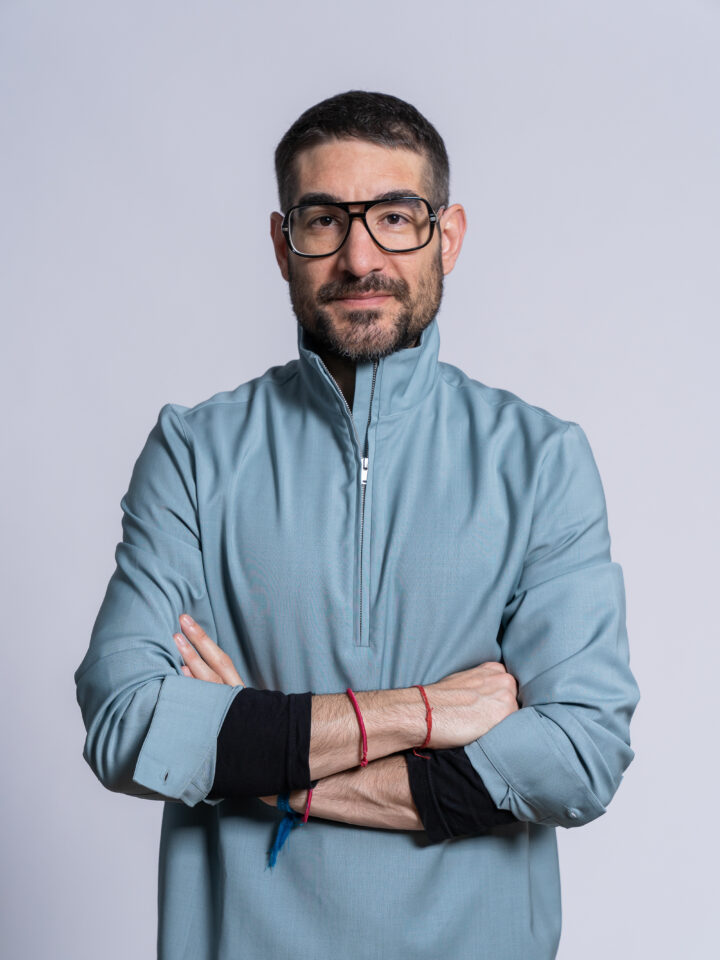
Photo Credit: SLS Studio
Solimán López is a conceptual artist in new media with a focus on biotechnology, artificial intelligence, digital art, and interactivity. He founded the Harddiskmuseum in 2015, introduced the biotoken OLEA, and initiated the Manifesto Terricola movement. His work has been showcased in over 20 countries, spanning museums, festivals, art centers, and galleries. Additionally, his research has been disseminated in universities across more than 20 countries.
Why did you become part of the QuantWorld project?
“I strongly believe that Quantum Computing is a game changer in society, and that the major challenges of our current world have always been addressed by art in the first instance. This is my primary interest in the project: exploring how we can approach this new technology from a critical and analytical perspective, and examining how it could reshape our understanding of art, its production, and the societal implications of the information age.
I am deeply fascinated by the concepts underlying the quantum world, and I also believe that a better and more profound understanding of this technology will aid humanity in comprehending the origins of our species and ourselves. However, we must be mindful to "curate" how society utilizes this powerful tool. Any technology devoid of consciousness can become a weapon, so it is crucial to analyze all the dimensions involved in the dissemination of new ideas and concepts related to this advancement.
I hold hope that, through our collective efforts in the QuantumWorld project, we will collectively attain the expertise necessary to maintain this critical perspective and overview, to be applied creatively, thereby redefining art concepts and adding social value in the process.
Personally, I am incredibly curious to see where this journey will lead us and how my background in art will respond to this new knowledge. My ultimate goal is to delve into the most intriguing aspects of human nature and its relationship with society, envisioning a new and improved future where technology assists humans in overcoming challenges and elevating our levels of consciousness, fostering connections with others and with nature at large.”
Benjamin Nott

Benjamin Nott is a South African architect. He helps people create meaningful spaces and places to share stories and memories. He has been practising architecture for over 20 years. With his wife and partner, they have co-founded:
Blanco Architecture & Design, in 2008; Humanitas |Living Innovation Laboratory, Ticino in 2019 as a multi-disciplinary next-practise case-study for the future of the Architecture, Engineering and Construction Industry. This project has won Horizon Europe and Innosuisse Flagship funding; and
BlancoLAB Virtual Production Studios in 2022, a multidisciplinary team of storytellers that create and curate immersive gamified experiences. BlancoLAB has worked with Siemens, Lucid, Moth Quantum and is working on the research projects; “Quantworld” with TUM School of Social Science and Technology and Fraunhofer AISEC,and the “Resilient-Hydro-Twin” project with TU Delft, the Indian Institute of Technology, Madras and the Eindhoven University of Technology.
Ben is the co-founder of ZERO Construct - https://zeroconstruct.com/ , is a board member of [y]our2040 - https://your2040.com/ , sits on the advisory council of Puzzle X - https://www.puzzlex.io/ , is a thought leader on the “Brains trust” created by the Innovation Foundation powered by the Adecco Group and is a member of Degrowth Switzerland.
His home and studio have been in Valle di Blenio, Ticino in the Swiss Alpssince 2010. He is a man of the sciences, arts and humanities. Architecture for him is an embodiment of all three. Benjamin loves mountain sports, he is a voracious reader and has an appreciation for music, dance, and art. Above anything else he loves an interesting conversation. He brings passion, commitment, and dedication to his projects to make them relevant. He has often been called a “thinking doer.”
Why did you become part of the QuantWorld project?
“I liked the people in the project and the storyline presented to me at the first moment of listening. I loved the fact that there was the willingness to dream and be a little ambitious.
That space between technology and the user is one of the most exciting and daunting places to be. Do you approach it with a tech mindset, or do you approach it with a end-users mindset? I feel the arts have always allowed us to bridge this gap. The impressionists tried to capture the scientific concepts of space and time through painting and Pixar has used technology to drive new media art forms whilst also creating new technologies to express new art forms that have become ubiquitous in our society today.
I wanted BlancoLAB to be a part of this creative bridging and the bringing of people together in a positive manner.”
Meet our partners MATTER and XR Hub Bavaria
XR Hub Bavaria
The XR HUB Bavaria is an initiative to strengthen Bavaria as a media and business location and is funded by the Bavarian State Ministry for Digital Affairs. The project has three locations: XR HUB Munich, XR HUB Nuremberg and XR HUB Würzburg. All HUBs deal with issues relating to XR technologies and their numerous applications.
The XR HUB Bavaria in Munich connects the players in the XR community in Bavaria and beyond with entrepreneurs and people who are curious or want to know how XR will change their working and living environment. It drives the development and dissemination of XR applications, links expertise and promotes the transfer of knowledge and exchange of experience between research & development, industry and the cultural and creative sectors.
Silke Schmidt, Head of XR Hub Bavaria in Munich
 “The XR Hub Bavaria is happy to support the QuantWorld-Project. We are looking forward to the ideas of the artists how to visualize and experience information about quantum computers and their applications etc. with XR-technologies. We will support the project with our knowledge, network, equipment, events and communication measures.”
“The XR Hub Bavaria is happy to support the QuantWorld-Project. We are looking forward to the ideas of the artists how to visualize and experience information about quantum computers and their applications etc. with XR-technologies. We will support the project with our knowledge, network, equipment, events and communication measures.”
MATTER
MATTER is an international Think Tank and Public-Benefit initiative focused on using Exponential Technologies to help solve some of humanity's most pressing challenges. One of its initiatives is PUZZLE X - the world's leading forum for Exponential Technologies & Deep Science for the Future. Supported by the government of Spain, the Generalitat of Catalonia and Barcelona city hall, PUZZLE X 23 convened over 3,000 stakeholders from 64 countries and 52% decision-makers.
More than an event, PUZZLE X is an ecosystem activator and a global agenda-shaping forum, bringing the world's most powerful voices — industry leaders, scientific luminaries, Nobel Laureates, technologists, and policymakers to reveal the power of exponential technology and deep science. It is a catalyst for collaborative initiatives and projects, such as the Quantum Symphony of Biology, Biowaves— storing memories inside DNA, and hbar & the world’s first quantum bartender.
PUZZLE X and MATTER, in partnership with IYQ (International Year of Quantum), launched an Open Letter to encourage the UN to proclaim 2025 as the International Year of Quantum. In November 2023, the first gathering of key quantum stakeholders and Quantum Collective took place at PUZZLE X in Barcelona and showcased the commitment of the global quantum ecosystem for the declaration of IYQ2025. On June 7, 2024, the United Nations proclaimed 2025 as the International Year of Quantum Science and Technology.
In 2024, from the creators of PUZZLE X, comes another experience merging deep science and global thought. XPANSE, the world's first visioning of the future of exponential technology, will take place in Abu Dhabi on November 20–22 and will serve as a driving force for exponential fields such as quantum computing, genomics, synthetic intelligence, next-generation materials, brain-machine interfaces, and fusion energy.
https://www.puzzlex.io/, https://www.xpanse.world/
Zina Cinker, Director General at MATTER
 “Quantum is the way the universe expresses itself, while art is the way humans do. Connecting the governing rules of the universe with creative minds creates a new sense of experience for exponential technologies. PUZZLE X and XPANSE, initiatives of MATTER, support and give platforms to transformative projects, like QuantWorld, where visionary thinkers and decision-makers from different fields connect and explore the potential of exponential technology and future, today.”
“Quantum is the way the universe expresses itself, while art is the way humans do. Connecting the governing rules of the universe with creative minds creates a new sense of experience for exponential technologies. PUZZLE X and XPANSE, initiatives of MATTER, support and give platforms to transformative projects, like QuantWorld, where visionary thinkers and decision-makers from different fields connect and explore the potential of exponential technology and future, today.”
We are very happy to have this blend of creative minds on board for the QuantWorld project and look forward to what they will be creating together with us!
Quantum technologies will potentially transform whole industries, create new markets, and push the boundaries of our imagination. These transformations will include new, highly secure, and fast ways of communication and powerful quantum computers that can solve problems we currently cannot solve because of the computational limits of today's supercomputers.
However, with these revolutionary technologies come new challenges for society. The Quantum Social Lab's mission is to research the societal, ethical, political, and legal challenges of tomorrow's quantum world.
To tackle these questions, we count on interdisciplinary and highly motivated teams and future generations. To accomplish this mission, we created a scholarship program, the Young Quantum Social Scientists, a collaboration between the TUM Think Tank and the QuantWorld Project. Each cohort consists of up to 20 students who can put their theoretical knowledge to use by addressing real-world problems.
Out of over 50 applications from study programs all over Munich's universities, we chose six of the brightest minds. Our first cohort of Young Quantum Social Scientists originates from six different nations, pursuing studies in various fields from Psychology, Politics, and Technology to Biomedical Engineering and Medical Physics!
We are pleased to introduce our incredibly talented first cohort of Young Quantum Social Scientists.
Alexander Orlov
Alexander Orlov is a double degree student of Quantum Science and Technology (M.Sc. at TUM/LMU) and Political Science (B.Sc. at TUM). He is particularly interested in translating cutting-edge scientific findings into actionable and socially beneficial insights.

Why did you become a YQSS?
Quantum Technologies have the potential to have a profound impact on our society. I joined the YQSS program to learn how we can initiate responsible quantum innovation and ensure a globally positive impact of quantum tech. Plus, the societal perspective is a super valuable add-on to the technical point of view from my university studies.
Favorite part of being a YQSS
I really enjoy working together with my fellow YQSS. We come from different study backgrounds, but we share the fascination for quantum tech and the commitment to make a difference.
Something interesting or valuable you have learned so far
We have been involved in several events already, with partners from business, politics and research. It is really interesting how differently these groups think about and approach quantum technologies.
Eden Castaneira Rios
Eden Castaneira Rios has studied Actuarial Science and is now pursuing a master’s degree in Politics and Technology. He is interdisciplinary and implementation driven and has deep experience and interest in pairing up society, politics, business and technology.

Why did you become a YQSS?
I became a YQSS because I am passionate about showcasing and driving innovative developments that make use of quantum science as enablers of the greater good. I am interested in building useful interdisciplinary frameworks and addressing societal questions to enable the development of responsible, efficient, and implementable quantum technologies.
Favorite part of being a YQSS
The program has such a great and talented team, the work is fun, challenging but also useful!
Something interesting or valuable you have learned so far
Quantum technologies are as unstable as life gets, so we should not be scared about it. We are already living under its rules.
Ekin Arslan
Ekin Arslan is a Master's student in psychology focused on learning sciences. He is passionate about understanding the human mind and values teamwork and communication. His interests span psychology, technology, and politics, aiming to enhance organizational achievement and explore the impact of psychology on quantum technologies and policies.

Why did you become a YQSS?
I became a YQSS to explore other research areas rather than psychology, but at the same time use my knowledge to a field unknown.
Favorite part of being a YQSS
My favorite part of working at YQSS is being part of such an incredible team; the friendliness, support, and shared passion for our work make every day both enjoyable and fulfilling.
Something interesting or valuable you have learned so far
Working at YQSS has significantly enhanced my understanding of quantum policies and their transformative impact on technology and society. This experience has also provided valuable insights into the psychological effects of these advancements, highlighting how they can redefine social structures, especially broadening my views on how to look at the world as a psychologist.
Jerry Miller
Hailing from Canada, Jerry Miller is a Master of Politics and Technology student at the Technical University of Munich, specializing in Data & Society. He is fascinated by all things technology and how innovation can reshape political landscapes.
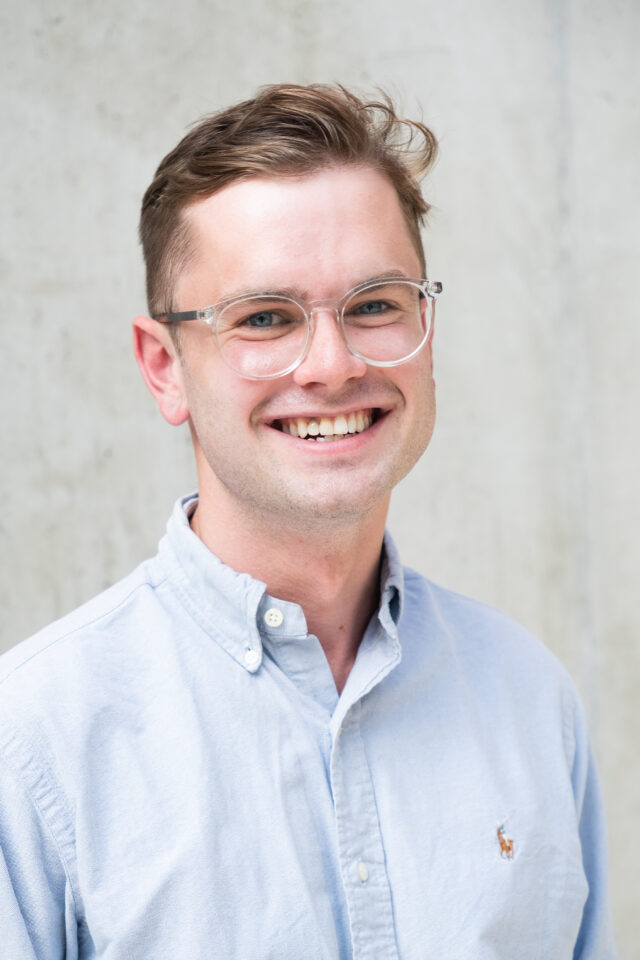
Why did you become a YQSS?
I joined the YQSS to explore the profound societal and ethical implications of second generation (and beyond!) quantum technologies. I aim to contribute to informed policy-making decisions and help shape public understanding of quantum technologies.
Favorite part of being a YQSS
The best part of joining the Young Quantum Social Scientists is the team: I have an incredible time learning from my fellow students and I always feel supported by the lab's leadership in continuing my learning journey.
Something interesting or valuable you have learned so far
There are no easy answers in the quantum world.
Nuria Quesada Perez
Nuria Quesada Perez is currently studying Biomedical Engineering and Medical Physics at the TUM. She has always been passionate about research in the medical field but she also enjoys learning about completely unrelated study areas. She is an active and curious person, always looking forward to getting to know new people and hobbies.

Why did you become a YQSS?
Quantum mechanics has always been a background topic throughout my studies, but I have never been actually involved in its world. Moreover, I have never had the opportunity to participate in anything related to political sciences. Being a YQSS has brought me the opportunity to combine these two interesting fields and be part of an interdisciplinary project in which people with different backgrounds help me extend my knowledge while having a joyful experience.
Favorite part of being a YQSS
I really enjoy spending time with the team and we are offered a broad range of opportunities to take part in events and seminars that I wouldn't be aware of if I wasn't a YQSS.
Something interesting or valuable you have learned so far
Basics of Quantum Technology, the impact that Quantum technologies are having nowadays and the consequent technological evolution that is needed, how to coordinate different teams within the same project, etc.
Rowan Crawford
Rowan Crawford is a Political Science student at the Technical University of Munich. He works as a student research assistant at the TUM School of Governance and the TUM School of Management. He is particularly interested in the development and governance of emerging technologies and economic and global justice.
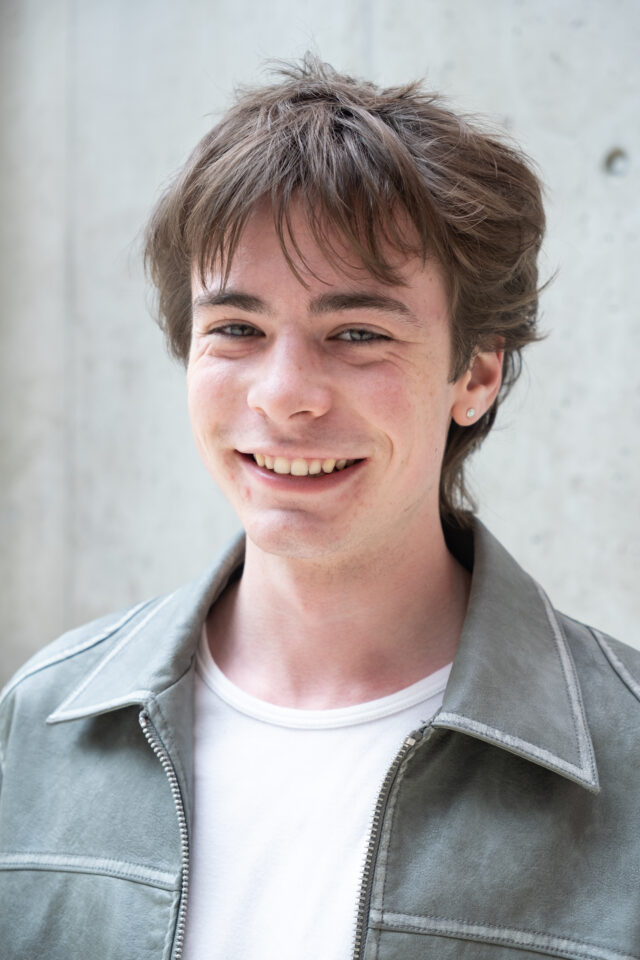
Why did you become a YQSS?
I joined the YQSS to work at the intersection of emerging technologies and governance. I am fascinated by quantum technologies and believe their development has massive transformative implications for science, economy, and society. As a member of the YQSS, I can research this interdisciplinary and cutting-edge field as it unfolds "in real-time."
Favorite part of being a YQSS
My favorite part of being a YQSS is working with and observing some of the brightest minds in quantum technology, economy, and social sciences. I am grateful to be a part of such an impressive research network.
Something interesting or valuable you have learned so far
During my time as a YQSS, I have been able to improve my stakeholder management skills, especially in a research context.
Are you curious to become a Young Quantum Social Scientist yourself?
Stay tuned as our new application phase for the scholarship program is starting soon!
Are you a passionate informatics student eager to contribute to an innovative learning platform? The Quantum Social Lab is looking for informatics students to do their interdisciplinary project (IDP) within our flagship project QuantWorld.
About the project
The aim of the project is to impart knowledge of quantum technologies 2.0 to target groups and to make them tangible. For this purpose, the module-based QuantWorld learning platform with certification options meets people in their respective living and working environments. The focus is on the living environments of mobility, banking and medicine.
In this project you work on the following topics:
- Create a digital learning platform for QuantWorld
- Integrate interactive modules into the digital learning platform
- Support on the creation of the QuantWorld website
- Create interactive presentation materials on the topic of quantum technology
- Cut science videos for the learning platform
- You are always welcome to contribute your ideas to the project!
Your benefits
- Integration in a interdisciplinary team of IDP students at TUM Think Tank.
- Build a network in an expert environment.
- Exchange ideas with various experts from the field of art, politics, architecture, physics,
games engineering and data science. - Better chances on the job market: After submitting your thesis or project work, you will
receive a reference certificate if required
More information
- ECTS credits, e.g. as part of a a compulsory or research internship.
- Opportunity to write thesis with TUM Think Tank.
- Work can be done from a remote position if required
- Start is flexible.
- The duration of work is flexible: but there a fixed dates.
- Voluntary participation in various workshops and lectures as part of the QuantWorld project
- Co-working in the heart of Munich with unlimited supply of coffee (personal use only)
Requirements
- Interest in the topic of quantum technology
- Good knowledge of programming websites (in particular wordpress), digital learning platforms and digital modules
- Intermediate knowledge or interest in cutting programs as Adobe Premiere
- Team player skills
- High motivation and independent way of working, proactive and self-organized
Interested in becoming part of the QuantWorld-project?
For questions and registration, please contact Alisha Ogidan.
Data Studies and Ethical Data Work – Two positions available
The Ethical Data Initiative at the chair of Philosophy and History of Science and Technology (est. September 2024) of Prof. Sabina Leonelli is a global coordinating hub for research on data ethics and related education and policy activities. We are looking forward to collaborate with a highly motivated postdoctoral researcher who shares our deep interest in exploring educational, social, and governance issues that emerge in the context of working with data (both within and beyond the realm of scientific research), as well as possible future scenarios and applications particularly in relation to Artificial Intelligence.
We are looking for fellows with a background in policy, governance or data science and a strong interest in data studies and practical applications.
We are a very interdisciplinary team and world-leading expertise in the philosophy, history and social studies of data, data ethics and the governance of data and AI. We invite the researcher taking on this position under the chair of Philosophy and History of Science and Technology to become a core contributor to the Ethical Data Initiative.
About the Ethical Data Initiative at the TUM Think Tank
The Ethical Data Initiative is a global coordinating hub for research on data ethics and related education and policy activities. It brings together a network of relevant partners with the aim to scale up available resources to foster just, ethical and responsible data production, trading, processing and use around the world. We are particularly interested in developing training resources and governance models for under-resourced parts of society, including research institutions as well as small and medium enterprises, civil society organizations, social services, public administrations and other public bodies – which do crucial data work across the globe yet do not typically have in-house resources to develop skills in responsible data management.
What we offer:
- Cutting-edge research in a collaborative environment
- Opportunities to shape policy and governance concerning innovative technologies
- A global community and cooperations with partners like UNESCO, FAO, and OECD
Application
We look forward to receiving your application by 1st of April 2024!
We will review applications on a continuous basis thus, they should be submitted as early as possible via e-mail to: tumthinktank@hfp.tum.de
Learn more and apply here.
The Urban Digitainability Lab aims to integrate digitalization and sustainability in urban spaces in order to shape sustainable urban services of general interest. It addresses the challenge that, despite the existing calls for such integration, a common understanding and effective concepts for combining sustainability and digitalization only exist in rudimentary form. The project plans to address this shortcoming by creating a community of practice, training opportunities and a catalog of criteria for measuring success. In addition, the exchange between science and practice is to be strengthened in order to develop innovative and sustainable solutions in the areas of "mobility", "housing" and "health".
We are excited to be building the team and are looking for three positions.
- Community Expert
- Transformation Coach
- Research Assistant
Find the role descriptions and more information on the application process (in German) through the button below.
Apply by April 2 and become part of the vibrant TUM Think Tank community. We are looking forward to meeting you!
The Stiftung Mercator supports this project at the TUM Think Tank in their section „Digitalisierte Gesellschaft“ for the duration of three years.
The research project "Using AI to Increase Resilience against Toxicity in Online Entertainment (ToxicAInment)", by Prof. Dr. Yannis Theocharis (Chair of Digital Governance), funded by the Bavarian Research Institute for Digital Transformation (BIDT), explores the spread of extremist, conspiratorial and misleading content on social media, investigating how this content is embedded through entertaining content. It aims to deepen the understanding of the impact of this content on user behavior by combining entertainment theories, visual communication and toxic language with AI methods. This project makes an important contribution to analyzing and combating online toxicity. More information can be found on the project page or in the BIDT press release.
After an intense three-day negotiation marathon, negotiators from the Council presidency and the European Parliament have successfully reached a provisional agreement on the proposal concerning standardized regulations for artificial intelligence (AI), known as the Artificial Intelligence Act. The objective of the draft regulation is to guarantee the safety of AI systems introduced to the European market and employed within the EU, with a commitment to upholding fundamental rights and EU values. This groundbreaking proposal additionally seeks to foster increased investment and innovation in the field of AI within Europe. Following this provisional agreement, efforts will persist at a technical level in the upcoming weeks to conclude the specifics of the new regulation. Once this work is completed, the presidency will present the compromise text to the representatives of the member states for endorsement. The comprehensive text will require confirmation from both institutions and undergo legal-linguistic revision before formal adoption by the co-legislators.
We asked members of our community for their insights on the AI Act. This is what they think:
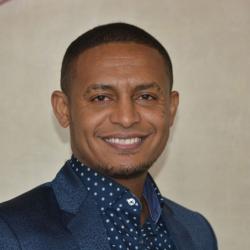 Samson Esaias: Associate Professor of Law at BI Norwegian Business School, Faculty Associate at the Berkman Klein Center of Internet and Society at Harvard University
Samson Esaias: Associate Professor of Law at BI Norwegian Business School, Faculty Associate at the Berkman Klein Center of Internet and Society at Harvard University
"Since the Commission's April 2021 proposal, consensus has emerged within the bloc's legislative bodies on a risk-based approach to AI regulation, along with innovation-supporting measures like sandboxes. Debates have focused on sensitive issues such as biometric identification for law enforcement and regulation of General Purpose AI (GPAI). The Parliament advocated for stronger fundamental rights safeguards, while the Council favoured broader exemptions for the use of biometric identification for law enforcement. The Parliament's GPAI regulatory proposal also encountered resistance from the Council, partly because it focuses on the technology itself instead of the associated risks. Nonetheless, from the press-releases, the Parliament seems to have secured significant wins, including bans on biometric identification using sensitive data, internet photo scraping for facial recognition, restrictions on predictive policing, and mandatory rights impact assessments for high-risk systems. Similarly, despite strong resistance from some member states, the latest draft also includes important obligations on GPAI and systemic foundational models, though criteria for the latter may be overly stringent. This focus on GPAI regulation, initially absent from the Commission's draft, highlights the shift in priorities over the past two years. The question that remains is whether these additions will stay relevant in two years when the legislation comes into effect or if they will highlight the need for a rethink on how to regulate such rapidly evolving technologies."
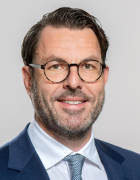 Urs Gasser: Professor of Public Policy, Governance and Innovative Technology and serves as Rector of the Hochschule für Politik (HfP) and Dean of the TUM School of Social Sciences and Technology, Leader of the TUM Generative AI Taskforce
Urs Gasser: Professor of Public Policy, Governance and Innovative Technology and serves as Rector of the Hochschule für Politik (HfP) and Dean of the TUM School of Social Sciences and Technology, Leader of the TUM Generative AI Taskforce
"The agreement on the AI Act marks an important milestone. Above all, it is a powerful political signal to the global community, showing that the EU lawmaking bodies are functional and can come up with meaningful guardrails in a complex and fast-moving normative field, with human rights and democratic values as lodestars. Whether the AI Act as a complex legal and regulatory intervention – at times resembling a Rorschach test – will live up to the high hopes expressed by its leading proponents remains to be seen. AI governance as a normative field comes with many unknowns. Perhaps the biggest challenge ahead is to learn continuously and manage both legal path dependencies and unintended consequences that often come with such ambitious legislative projects, as the recent history of law, technology, and society teaches us."
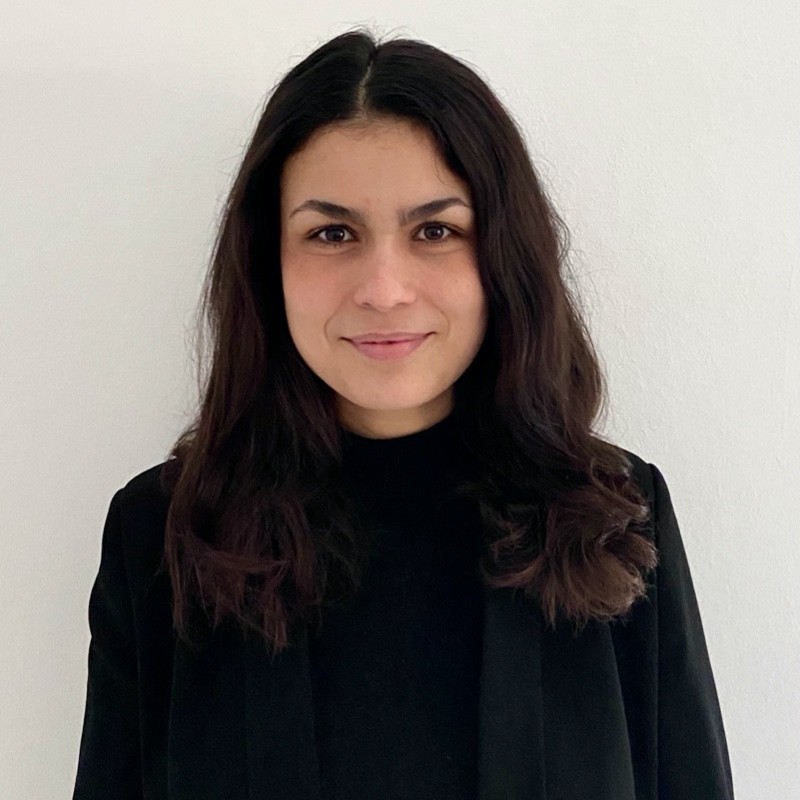
Noha Lea Halim: Doctoral Student and Research Assistant at the Professorship for Governance, Public Policy & Innovative Technologies at the TUM School of Governance, Assistant in the TUM Generative AI Taskforce
"The EU via its AI Act agreement brings forward a global benchmark regulatory proposal, representing most ambitious framework to date. By recognizing the need to not only regulate the economic but also the societal impacts of AI, it sets the tone for how AI might unravel in the future and implies far-reaching effects for the research and development of AI systems, in Europe and beyond.
The 12-24 months implementation phase will give a glimpse towards the long-term capability of the regulation to adapt to the technology’s disruptive potential as well as the Union’s ability for capacity building to bring the proposal to life.
The landmark proposal only marks the beginning of addressing AI’s future challenges, moving forward there will be many more to come."
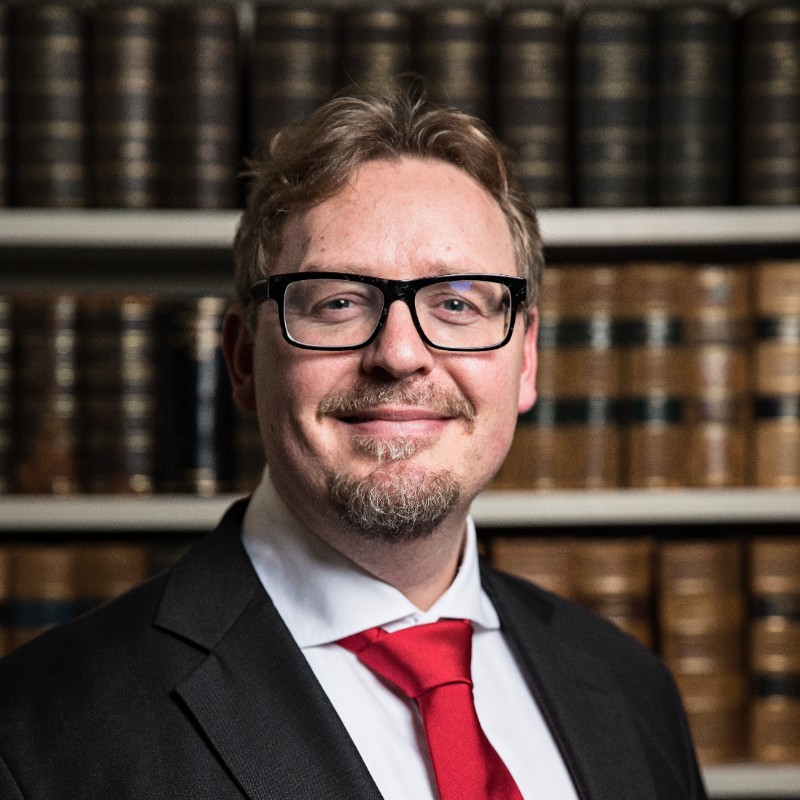 Timo Minssen: Law Professor, CeBIL Director, University of Copenhagen and Global Visiting Professor at TUM in Spring 2024
Timo Minssen: Law Professor, CeBIL Director, University of Copenhagen and Global Visiting Professor at TUM in Spring 2024
"While much controversy remains, reaching an agreement on the EU AI Act was crucial since the time to decide where to regulate (or not regulate) is now. AI is evolving so rapidly, and it's already used by millions of citizens in many areas and stages of life on a daily basis. Both the risks and the opportunities are real, and we must address them swiftly if we want to keep control and reap the benefits from this technology in sustainable, safe and fair ways.
Given the complexity of the topic and the need for trade-offs, the delays accompanying the negotiations of the AIA were not surprising. Many of the AIA’s more restrictive provisions, appear to have been slowly watered down. Mostly due to industry interests and competitive concerns, regulatory thresholds have been slowly lowered and more traditional value-based boundaries have been stretched out. For better or worse, we can also see similar developments in the drafting of such guidelines the Chinese interim regulations on generative AI, as well as in Western countries such as in the US and UK.
It is clear that these changing policy perspectives illustrate how AI challenges our traditional values and concepts which signifies the enormous stakes of the task at hand. The impact not only on businesses, welfare, industry, innovation, and the knowledge commons, but also on individuals’ access to - and protection from - powerful technology are massive. Calls for banning or more regulation of specific applications in the EU due to ethical and value-based legal concerns and precautionary approaches, had - and will have - to be balanced against both competitive disadvantages and health risks due to missed opportunities by setting overly high regulatory thresholds. It can therefore be assumed that the significance of so-called regulatory sandboxes will grow, although this is a concept in need of further clarification.
It also seems to me that while rigorously protecting human rights and fundamental values, the AIA has with its risk category-based based aporoach generally taken an regulatory ”as open as possible, and as closed (i.e. regulated) as necessary” position. In particular with regard to lower risk AI systems, this could be good news for many innovators and SMEs developers, though some might have preferred even less rules. On the other hand, those concerned about the risks, or established companies with powerful IP portfolios and regulatory departments, might have preferred an ”as closed as possible, and as open as necessary” approach with high regulatory thresholds, be it to prevent risks - or (!) newcomers and competition.
In that regard it is also important to bear in mind that, essentially, the current debates that we see mostly concern high-level rules. What matters in daily life is how these are implemented where the action happens, as well as if the rules that we set are enforceable, feasible and if compliance can be monitored. If the choice is between having a jungle of extremely detailed rules with insufficient means for enforcement, and having less but very robust and enforceable rule, I definitely prefer the 2nd choice to increase the respect for the rules."
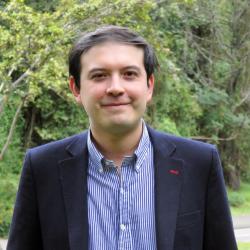
Armando Guio Espanol: Affiliate at the Berkman Klein Center for Internet & Society at Harvard University
"The EU AI Act is a regulation that not only will have an impact in Europe, but around the world. The adoption of this regulation will lead many countries to decide on their own rules regarding the development and implementation of this technology. It will be essential to follow the work that will come in the next months and the implementation process that will emerge in the European Union. In 2024 we will observe several countries join Europe in the official adoption of new regulations for AI systems. For example, several Latin-American countries are discussing now regulatory proposals for AI. The EU AI Act will have a considerable effect in mobilizing and accelerating many of these discussions. It will be also interesting to see how this policy fragmentation will impact the way this technology is being used and deployed, and the response of some of the biggest companies to this process."
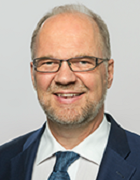 Dirk Heckmann: Law Professor at the TUM School of Social Sciences and Technology, Direktor bidt.digital, Generative AI Taskforce
Dirk Heckmann: Law Professor at the TUM School of Social Sciences and Technology, Direktor bidt.digital, Generative AI Taskforce
Whether the AI Act will prove to be effective regulation for AI will only be shown in legal practice. Political satisfaction does not replace legal certainty.
When: January 18, 2024
Where: Downtown Munich, Bayerischer Rundfunk (BR)
Hosted by: Bayerischer Rundfunk & TUM
Intended Audience: Researchers (professors, postdocs, PhD candidates) with an interest in AI and/or journalism and AI.
Join us in exploring the intersection of technology and journalism. This workshop focuses on getting to know the projects and methods being used in this exciting interdisciplinary field. And, to discover possible collaborations on use cases and methods. We look forward to connecting researchers in foundations, applications, and data! We explicitly encourage junior researchers to apply.
We want to hear from you if you work falls within one of the following topics:
- Language models for text services in journalism
- Dialect language model training
- Data to Text, Data to Graphics projects
- Automated audio fragmentation and tagging
- Face recognition in video content for metadata extraction
- Image or pattern recognition for investigations, e.g., in satellite imagery
Deadline for registration is December 5, 2023: https://collab.dvb.bayern/x/V5IuDQ
Participants will be selected within two weeks after submission deadline.
If you have any questions, please contact Emmelie Korell at emmelie.korell@tum.de
We look forward to seeing you in January!
